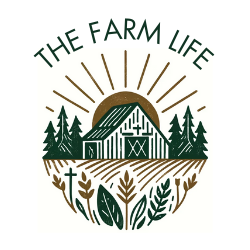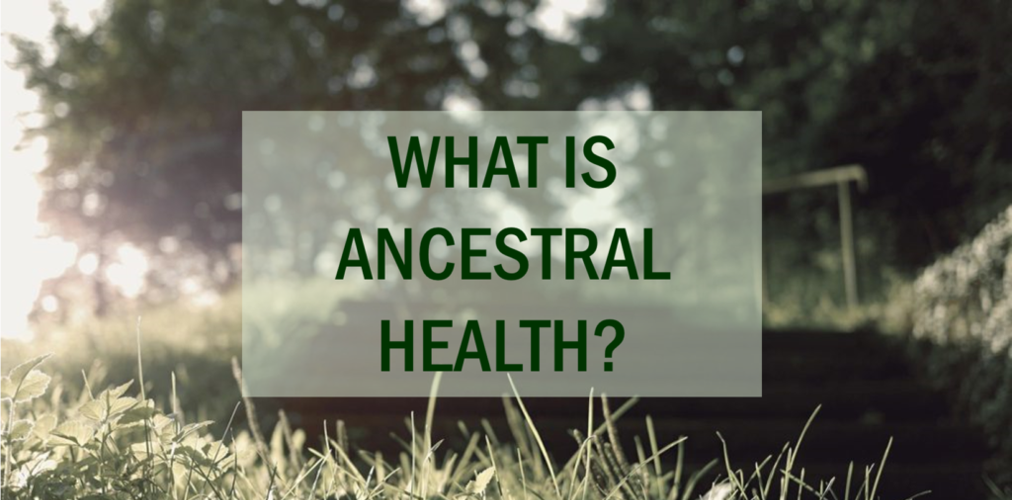Founder Essays, Functional Medicine
What is Ancestral Health?
Evolution is defined simply as change over time. When we (Ashley & Liz) reference “our ancestors,” we are referring to humans living before modern societies. We try to steer away from firm historical timelines and instead focus on pre- and post- modern times. We simply want to lay out the successes of “before” to find modern applications that may help us overcome current chronic, depleting issues.
For our ancestors, hard labor was a part of life. Without it, they didn’t survive. Conditions were harsh. People were cold in the winter, hot in the summer. Food had to be gathered, hunted, or grown. We were not protected from droughts, famines and other food shortages. Lives were lost when minor cuts turned into major infections. We had little guarantee of what tomorrow would bring. Yet, here we are today–promoting lives like our ancestors. Why? Our ancestors faced challenges rare for most of us today, but they were free of modern plagues, meaning modern inflammatory conditions and diseases. They were vibrant and strong. They initiated their “fight or flight” only when survival depended on it (not during little events like road rage). They lived in tightly-woven communities with social interaction and support. They were free of “wellness” or “fitness” or “beauty” pressures (culturally-developed ideas).
Does practicing ancestral health mean we can go back? Can we recreate those feelings? Those communities? No, we cannot. But, we can learn from them.
We can embrace modern advances without losing sight of ancient wisdom. That is ancestral health.
When humans adopted modern agriculture, we replaced much of our nutrient dense foods like meat, fruits, vegetables and starchy plants with nutrient-scant foods like wheat, rice and corn. As a result, we lost four inches from our average height, prevalence of anemia increased, our bones weakened, and infectious diseases became more rampant. (1) Today, extant hunter-gatherer populations exhibit far superior health when compared to other modern humans. This is evident in their lower blood pressure, improved insulin sensitivity, fewer bone fractures and improved fitness. (2)
A common argument against the ancestral approach is that ‘our ancestors all died by the time they were 30.’ This is misleading. While the life expectancy of our ancestors was much lower than today’s, this was due largely to infant mortality, warfare and infectious diseases. Those who lived to old age did so without chronic disease, while today, chronic disease has infiltrated into all populations, not just the elderly. (3)
In the U.S. today,
– 70% of adults are overweight or obese
– 1/3 of adults have high blood pressure
– Over 26 million adults have been diagnosed with heart disease
– Over 50 million adults have arthritis
– 6 million children have been diagnosed with ADHD
– 7.4 million women aged 15-44 have used infertility services (4)
Research reveals that our ancestors enjoyed robust health and that today, we do not.
Lower mortality is being replaced by higher morbidity (ill health). (5)
We have no desire to replicate all ancestral practices. But, we can incorporate important pieces of ancestral life. We can mimic the diet, activity, sleep habits, stress management and social interactions. This is vitally important because experts estimate that 90% of disease is caused by lifestyle choices, leaving just 10% caused by genetics.
Action Items:
Today, bring awareness to your life, identify what’s not working well, and begin making incremental improvements. Set priorities. Place accountability. Minimize modern stress. Learn how to use food as medicine. Overcome your addiction to sugar. Move all day, not just for an hour at the end of the day. Face your dark passengers and show them the exit door, once and for all. Discover tools in your life to never allow those dark passengers in again. Discover love in yourself and others. See the beauty even when it’s hidden behind what makes you uncomfortable. Invite others beside you to help you. Overcome your loneliness. Improve your relationships. Do not let anyone shame or dehumanize you. Put down your distractions and enjoy boredom. Soak up your family and friends. Spend pockets of time each day doing what you love. Choose a job you love. No age range is too young to begin. Children need to make these changes too. They should not spend their days inside, overly-busy driving from point A to B, and plugged into media devices. As their care provider, you control these decisions. Help them!
Let’s begin.


Thanks for this helpful article. These days we have to bring awareness to our lives especially that almost all food that we eat today are instant and preserved.